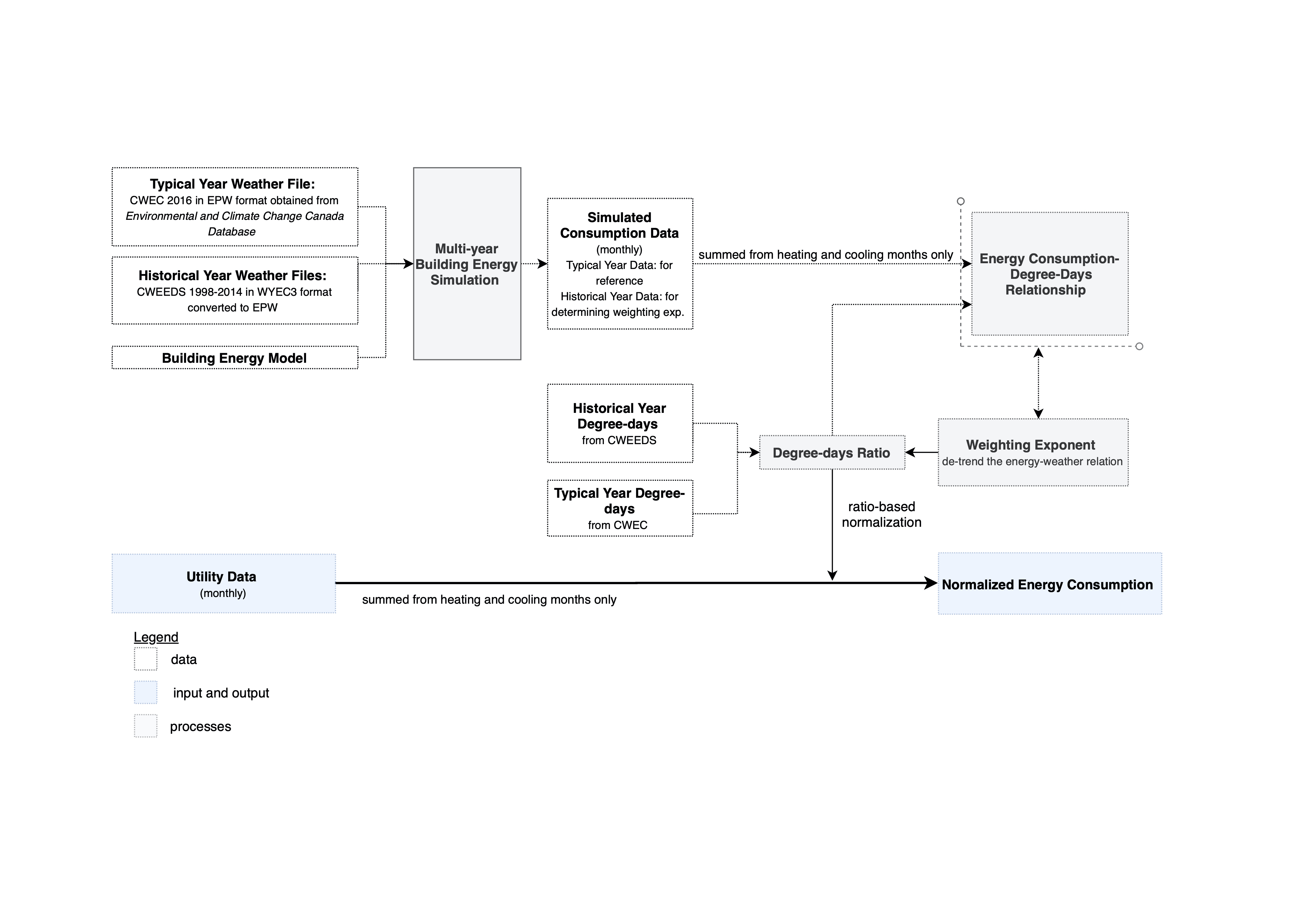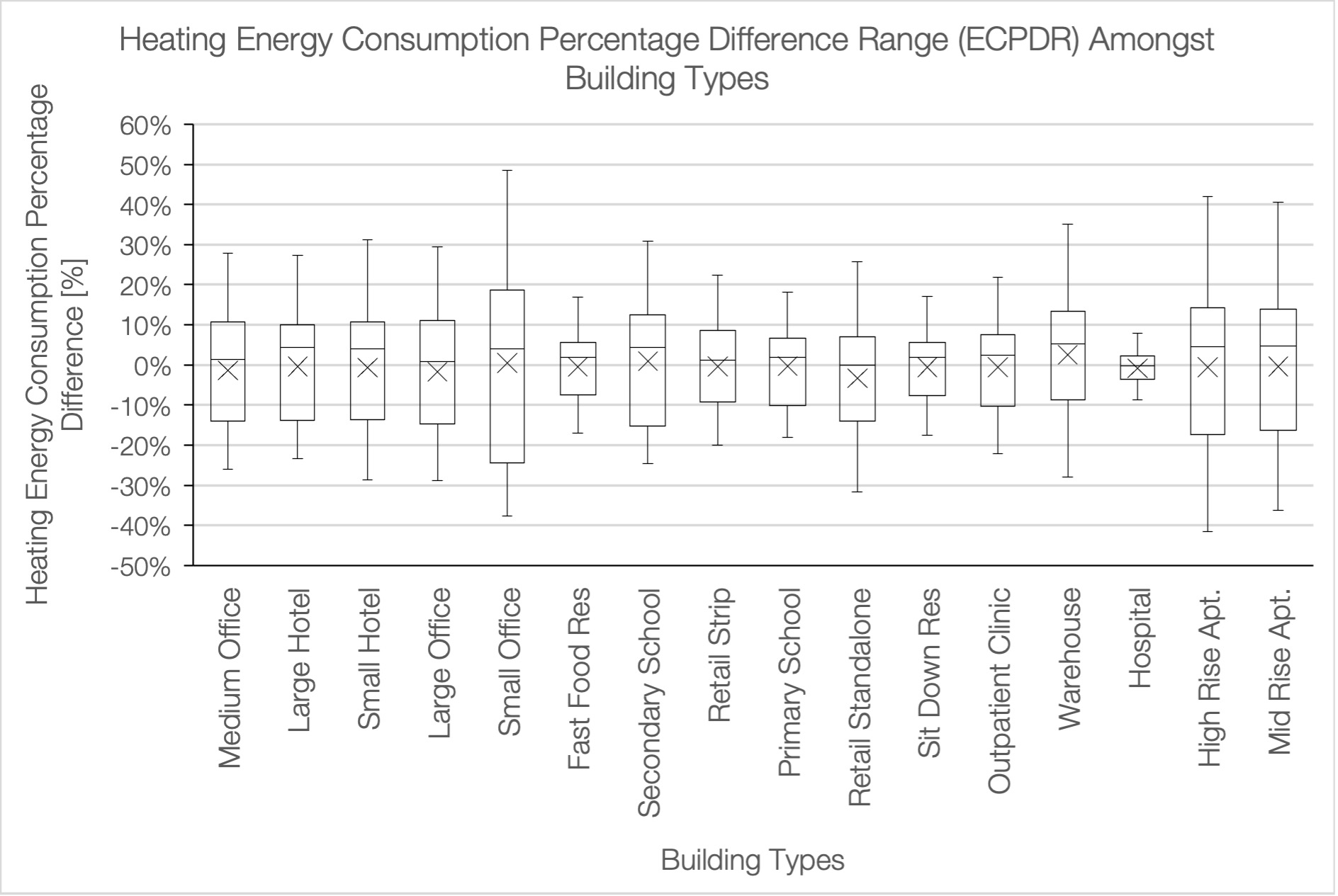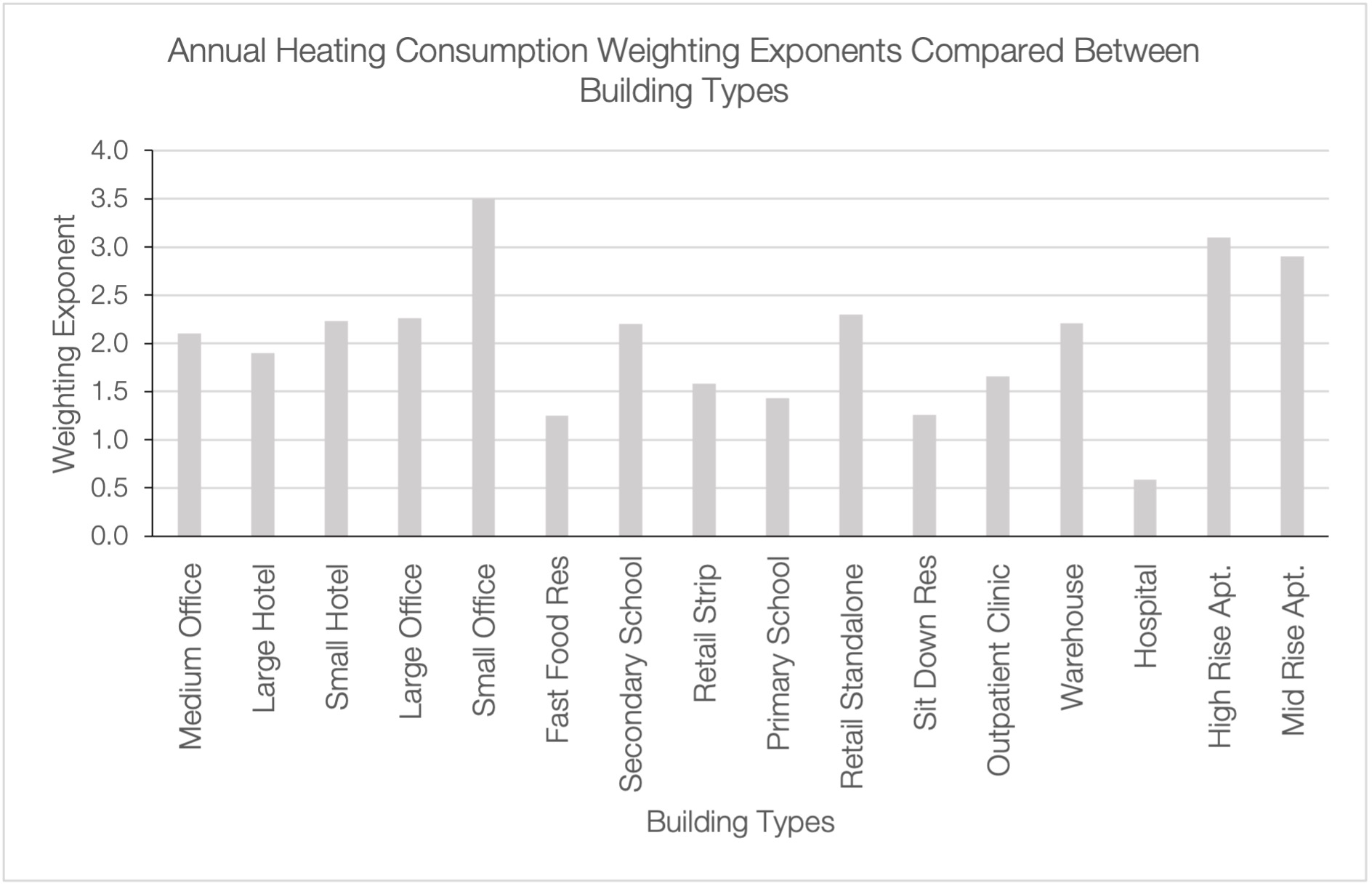




CLAIRE TAM, MASc
A Novel Method to Assess Long-Term Building Energy Consumption Variation through Weather Normalization and Multiple Year Building Energy Simulation
Building energy performance is subject to influences such as weather variations, changes in the building conditions, as well as changes in occupant behaviour and operational schemes. This research builds on and improves the efficacy of the Degree-days Ratio-based method, a commonly used weather normalization method, by way of introducing a weighting exponent and excluding the consumption values during the “Shoulder Season” months in the dataset for deriving an indicator of the changes in building condition or system operations over years. These two proposed schemes were tested using both simulated and measured space heating and cooling energy consumption data. Prototype commercial building models were simulated with published Typical Year (CWEC2016) and Historical Year Weather Data (CWEEDS 1998-2014). Based on standard deviation and CVRMSE figures between the normalized values and the reference value simulated using Typical Year weather data, the proposed method resulted in less year-to-year energy consumption variations when compared to two conventional methods. The measured energy consumption data of an in-service Case Study Building were weather-normalized to derive an energy consumption variation trend. Normalizing with the proposed method yielded a more definitive energy consumption variation trend which is indicative of the long-term energy performance due to changes in building condition and operational schemes.
The research questions that the thesis aims to investigate are:
A Novel Method to Assess Long-Term Building Energy Consumption Variation through Weather Normalization and Multiple Year Building Energy Simulation
Building energy performance is subject to influences such as weather variations, changes in the building conditions, as well as changes in occupant behaviour and operational schemes. This research builds on and improves the efficacy of the Degree-days Ratio-based method, a commonly used weather normalization method, by way of introducing a weighting exponent and excluding the consumption values during the “Shoulder Season” months in the dataset for deriving an indicator of the changes in building condition or system operations over years. These two proposed schemes were tested using both simulated and measured space heating and cooling energy consumption data. Prototype commercial building models were simulated with published Typical Year (CWEC2016) and Historical Year Weather Data (CWEEDS 1998-2014). Based on standard deviation and CVRMSE figures between the normalized values and the reference value simulated using Typical Year weather data, the proposed method resulted in less year-to-year energy consumption variations when compared to two conventional methods. The measured energy consumption data of an in-service Case Study Building were weather-normalized to derive an energy consumption variation trend. Normalizing with the proposed method yielded a more definitive energy consumption variation trend which is indicative of the long-term energy performance due to changes in building condition and operational schemes.
The research questions that the thesis aims to investigate are:
- How
can energy consumption results from Multiple Year Building Energy Simulation be
used to compute a representation of a building’s energy-weather relationship
for use in the weather normalization process?
- Are current weather normalization methods effective in determining the impacts of changes in building condition and operational schemes on energy consumption?